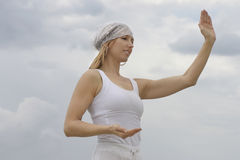I think most of us who have traveled around the sun 50 revolutions or more know that our “older” age translates to a duller, slower brain. In fact, cognitive changes start occurring at the age of 50. Some of the things we lose are our ability to rapidly process information and focus on details.
By age 70 one in six people has mild cognitive impairment—almost 17% of us! If you can do something now to prevent ending up being part of that sorry statistic, then I would say have at it!
Old beliefs about brain function and plasticity—
It wasn’t that long ago that scientists believed that the brain, once you reached adulthood, stopped changing. That it lacked plasticity—the ability of the brain to change throughout a person’s life.
That’s what I was taught in college. It was depressing.
Thankfully, scientists discovered that their theories were wrong, and it’s not true. The brain actually changes throughout a person’s life, and what we do—or don’t do—has a dramatic effect on those changes.
Now scientists know that the brain can:
- Grow new cells (which means it has some capacity for repair)
- Make new connections
- Increase in size
And all of these bonuses can improve cognitive function.
What helps the brain get sharper?
We now know that cognitive exercises, learning new things, socializing and exercise can improve brain function and keep it in top condition for longer than expected. In fact, some neuroscientists say that when you’re exercising the body, you’re really exercising the brain.
But what exercises are good at keeping the brain in top form, or actually improving its function?
It turns out that the internal martial art of tai chi is a real winner because it offers exceptional brain benefits.
Harvard Health noted a meta-analysis (statistical procedure for combining data from multiple studies) of 20 studies on tai chi’s effects on cognition. What they found in people with cognitive decline was that tai chi appears to improve their:
- Ability to multitask
- Manage time, and
- Make decisions
In those suffering mild cognitive impairment, tai chi’s slow, precise movements slowed the progression so all-out dementia more than any other types of exercise.
And it improved cognitive function in a similar or comparable way to other types of exercise or cognitive training.
That’s a big deal!
More good news about tai chi—
In one study, 400 Chinese men and women with the same cognitive impairment performed either tai chi or a stretching-toning combination program, 3 times a week for a year.
A year later, tai chi participants showed greater improvements in cognition and only 2% of them showed progression to dementia.
For the group doing only the traditional stretching-toning program, 11% progressed to dementia.
How does tai chi compare to walking?
Tai chi won that competition too.
When researchers compared tai chi to walking, social interaction, and no intervention, the MRIs of the participants’ brains showed that the brain volume of the tai chi exercisers had increased the most. So they won the brain volume contest, too.
And this happy group also performed better on cognitive tests.
I think I’m going to order a tai chi for beginners DVD. I tried it once before, but I got my DVDs from the library and had to return them before I had a good handle on the activity. I also took a tai chi class on the beach years ago during a Mexico getaway. And in college, I watched a friend of mine participate in the activity. He really bought into the spiritual aspect and acted a little weird about it.
The precise tai chi movements were harder than I thought they’d be, with the slow, deliberate motions, but I could tell right away that my balance would improve tremendously with sustained participation. And I would most likely benefit from the meditative aspect of the exercise. Although therein lies a word of caution.
Warning about tai chi—
Tai chi is an Eastern, internal martial art developed by a Taoist monk. It’s based on that religion—Taoism. So I would warn anyone participating in the exercise to drop the Taoist meditations and focus and zero in on Jesus, the Holy Spirit and His presence. Use it as a mind-centering exercise, without emptying your mind and opening the door to any old spirit looking for a place to entrench itself.
Be very careful what you open yourself up to.
You can reap the benefits of tai chi without sacrificing your soul or beliefs.
NEXT WEEK we’ll look closely at what makes tai chi such a successful activity. What are its special components?
Until then, think about adding different exercise routines to your repertoire, expanding yourself to something besides walking. Your brain will likely thank you for it.
Blessings,
